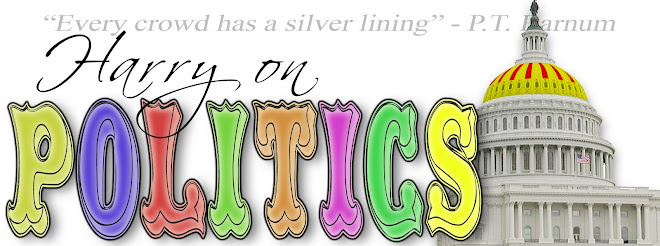My experience in higher education is that those who teach are simply not very bright. If they were, they'd be successful in other, better-paying ventures. At least, they all acted as though they'd rather be elsewhere. (My personal anecdote du jour concerns a woman who was in my graduate program; she was the biggest pain in the arse, interrupted teachers constantly, had never worked in the field, and announced repeatedly that she was going into education.) The one thing that, to a man, at which these folks were good was playing the political game that is academia. That game is why I left education.
So if you read below, you will see the fruits of education's labor: people know absolutely nothing about the government which controls them, and the world in which they live. I am appalled, but not surprised. We all love to see late night TV's jokes and videos of people making fools of themselves, but the problem is so widespread as to threaten US security, because ignorant people affect the economy.
Now, I'm far from a Marxist, but Karl Marx had much to say about the means by which a government controls its people that was correct. Some of it involves state apparati such as schools; keeping people in the dark enables the government to feed them whatever they wish. It's because of this that we have the lawmakers that we have. People never demand better, because they don't know what "better" is. Therefore, there is no impetus for lawmakers to actually improve education. To do so would expose them, and threaten their gravy train.
To paraphrase a popular bumper sticker, if you don't know anything about America, thank a teacher.
US officials flunk test of American history, economics, civics - Yahoo! News:
WASHINGTON (AFP) – US elected officials scored abysmally on a test measuring their civic knowledge, with an average grade of just 44 percent, the group that organized the exam said Thursday.
Ordinary citizens did not fare much better, scoring just 49 percent correct on the 33 exam questions compiled by the Intercollegiate Studies Institute (ISI).
"It is disturbing enough that the general public failed ISI's civic literacy test, but when you consider the even more dismal scores of elected officials, you have to be concerned," said Josiah Bunting, chairman of the National Civic Literacy Board at ISI.
"How can political leaders make informed decisions if they don't understand the American experience?" he added.
The exam questions covered American history, the workings of the US government and economics.
Among the questions asked of some 2,500 people who were randomly selected to take the test, including "self-identified elected officials," was one which asked respondents to "name two countries that were our enemies during World War II."
Sixty-nine percent of respondents correctly identified Germany and Japan. Among the incorrect answers were Britain, China, Russia, Canada, Mexico and Spain.
Forty percent of respondents, meanwhile, incorrectly believed that the US president has the power to declare war, while 54 percent correctly answered that that power rests with Congress.
Asked about the electoral college, 20 percent of elected officials incorrectly said it was established to "supervise the first televised presidential debates."
In fact, the system of choosing the US president via an indirect electoral college vote dates back some 220 years, to the US Constitution.
The question that received the fewest correct responses, just 16 percent, tested respondents' basic understanding of economic principles, asking why "free markets typically secure more economic prosperity than government's centralized planning?"
Activities that dull Americans' civic knowledge include talking on the phone and watching movies or television -- even news shows and documentaries, ISI said.
Meanwhile, civic knowledge is enhanced by discussing public affairs, taking part in civic activities and reading about current events and history, the group said.

No comments:
Post a Comment